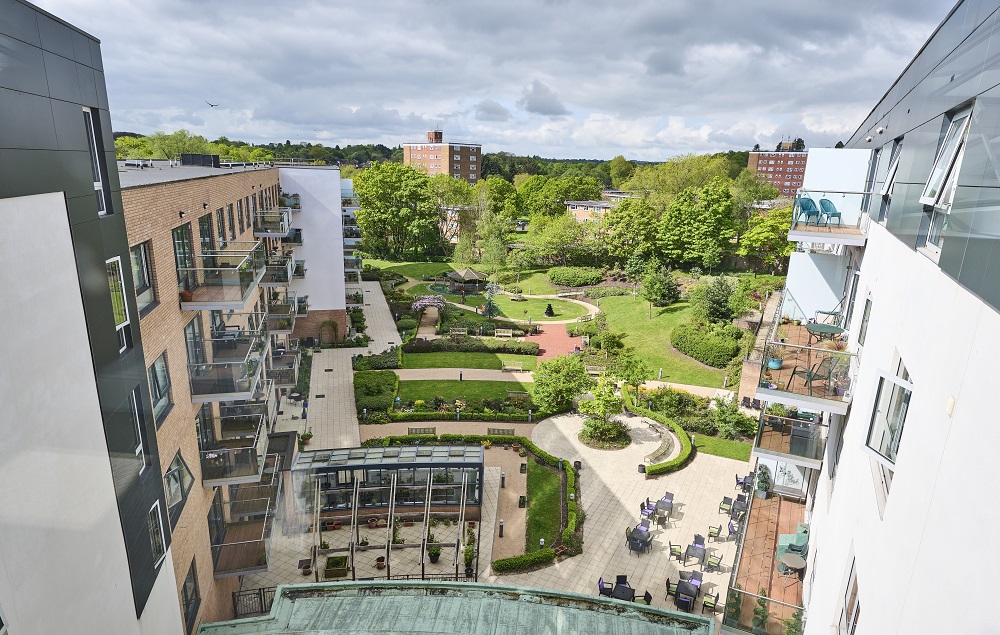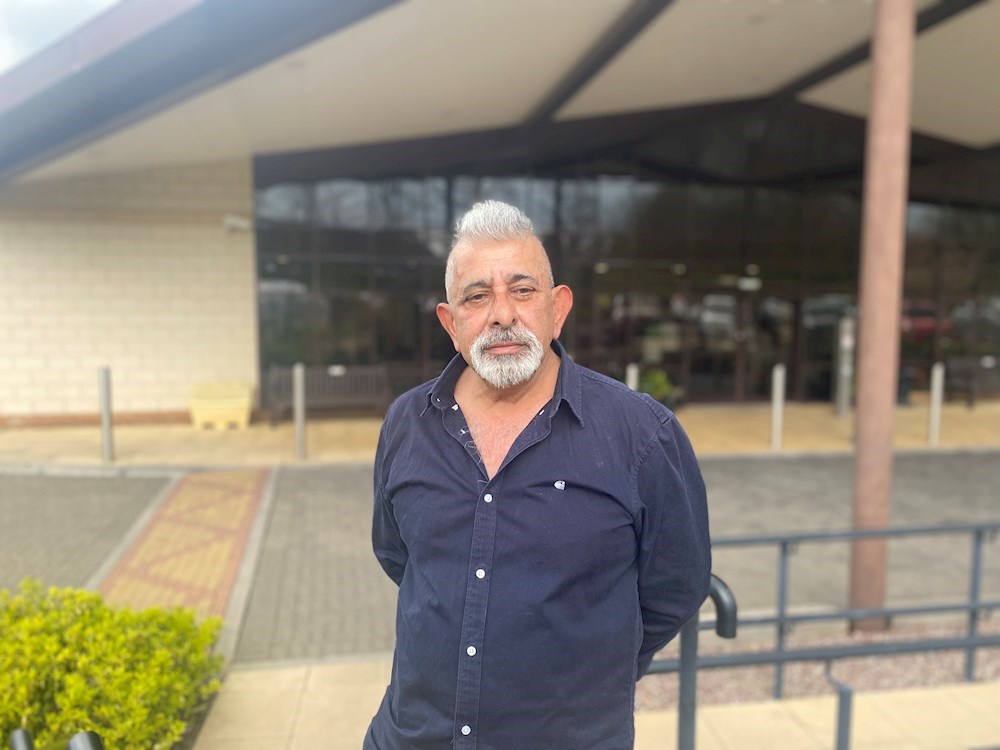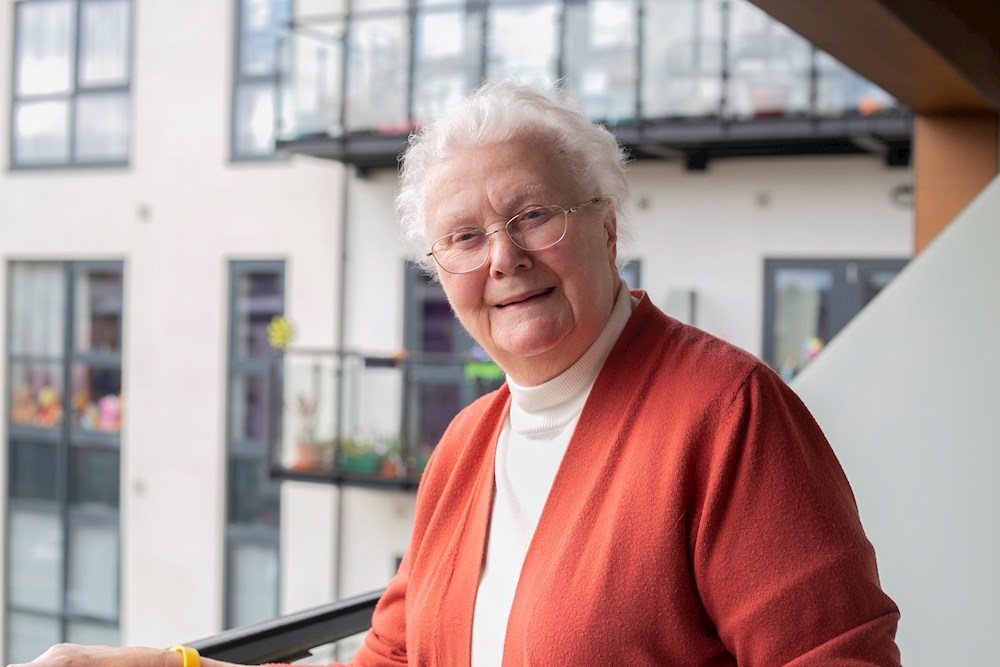
Better lives for older people

Creating vibrant communities

Enjoy a better life at ExtraCare

Every chapter has its own magic, discover it.

“It’s been the best decision for my health and wellbeing”
At ExtraCare there’s something for everyone
Our inspirational retirement villages offer vibrant communities for over 55’s that support a healthy, active and independent lifestyle in later years.
Since 1988, ExtraCare has been the UK’s leading not-for-profit pioneer for retirement living, opening locations around our Midlands base and further South.










About ExtraCare
ExtraCare is the UK’s leading not-for-profit retirement village developer and operator.
Locations
Bournville Gardens Village,
Birmingham
Earlsdon Park Village,
Coventry
Hagley Road Village,
Birmingham
Hughenden Gardens Village,
Humber Court,
Lark Hill Village,
Nottingham
Longbridge Village, Birmingham,
Birmingham
Lovat Fields Village,
Willen, Milton Keynes
New Oscott Village,
Birmingham
Pannel Croft Village,
Birmingham
Rosewood Court,
Shenley Wood Village,
Milton Keynes
Solihull Village,
Solihull
St Oswald’s Village,
Stoke Gifford Village, Bristol,
Sunley Court,
Wixams Village,
Bedford
Yates Court,
Locations
Villages
Charity Shops
Find our shop:
Bedgrove, Aylesbury
Jansell Square,
Bedgrove
Aylesbury
HP21 7ET
Telephone:
01296 394124
Find our shop:
Bulwell, Nottinghamshire
Main Street,
Bulwell
Nottinghamshire
NG6 8QD
Telephone:
01159 757860
Find our shop:
Copthorne, Shropshire
Mytton Oak Road,
Copthorne Shopping Centre
Shrewsbury
Shropshire
SY3 8UG
Telephone:
01743 368992
Find our shop:
Dronfield, Sheffield
Dronfield Civic Centre,
Sheffield
S18 1PD
Telephone:
01246 413509
Find our shop:
Great Homer Street, Merseyside
Jennifer Avenue,
Liverpool
Merseyside
L5 5AA
Telephone:
0151 207 3688
Find our shop:
Harwood, Greater Manchester
Lea Gate,
Bolton
Greater Manchester
BL2 3HN
Telephone:
01204 201311
Find our shop:
Irlam O’th’ Heights, Greater Manchester
Bolton Road,
Salford
Greater Manchester
M6 7NJ
Telephone:
0161 737 7258
Find our shop:
Leyland, Lancashire
Towngate,
Leyland
Lancashire
PR25 2FN
Telephone:
01772 458 259
Find our shop:
Middleton, Leeds
St George’s Retail Park,
Middleton
Leeds
LS10 4TQ
Telephone:
OPENING SOON
Find our shop:
Newfield Green, Sheffield
Gleadless Road,
Sheffield
South Yorkshire
S2 2BS
Telephone:
01142 642622
Find our shop:
Parr Bridge, Manchester
Mosley Common Road,
Tyldesley
Manchester
M29 8RZ
Find our shop:
Partington, Manchester
Partington Shopping Centre,
Manchester
Greater Manchester
M31 4EL
Telephone:
0161 776 2754
Find our shop:
Radbrook Green, Shrewsbury
The Mall,
Radbrook Green Centre
Bank Farm Road
Shrewsbury
Shropshire
Telephone:
01743 358809
Find our shop:
Retford, Nottinghamshire
Market Place,
Retford
Nottinghamshire
DN22 6DR
Telephone:
01777 708231
Find our shop:
Shifnal, Shropshire
Shifnal,
Shropshire
TF11 8AT
Telephone:
0161 312 4107
Find our shop:
Speke, Merseyside
Speke Retail Park,
Speke
Merseyside
L24 2WZ
Telephone:
0151 486 4543
Find our shop:
Urmston, Greater Manchester
Golden Way,
Urmston
Greater Manchester
M41 0NA
Telephone:
0161 747 6537
Find our shop:
Wednesfield, Wolverhampton
High Street,
Wolverhampton
WV11 1SZ
Telephone:
01902 733166
Find our shop:
West Bridgford, Nottingham
Wilford Lane Retail Park,
The Becket Way
West Bridgford
Nottingham
NG2 7BS
Telephone:
0115 704 4302
Find our shop:
Wollaton, Nottinghamshire
Wollaton District Centre,
110 Trowell Road
Wollaton
Nottinghamshire
NG8 2DH
Telephone:
0115 704 4220

Integrated retirement communities
Explore our vibrant retirement villages.

Lifestyle
A healthy, active, independent lifestyle awaits at our thriving communities.

Care & wellbeing
Our exceptional level of care and wellbeing services are available for those who need them.

Activities
With our range of weekly activities there’s always something to do!
Resident Stories
It has been two and a half years since we moved into Shenley Wood. We found our apartment here with the help of the council and I love it, it’s the best thing that happened to me. I love everything about this place.
Ghazal Butt
Shenley Wood

Resident Stories
Every Friday night we meet at one of our apartments and toast to friendship. We then enjoy a G&T and fish and chip Friday night and come here to enjoy the Piazza. We absolutely love it!
The Meaning of Friendship
Shenley Wood Village

Resident Stories
I used to be a warden for the elderly for over 20 years so you could say I am a people person. For my 80th birthday the village threw me a party, I could not believe it, 80 to 90 residents ended up showing up for me. There were even daffodil bulbs at my party for everyone.
Megan Betteridge
Longbridge Village

Resident Stories
The people here are lovely, and we feel safe. That’s a big thing to feel safe. We have made lots of friends. I love it here, I’m content.
Pam & Rob Randle
Solihull Village

Latest News

April 24, 2025

April 22, 2025

April 8, 2025

March 20, 2025